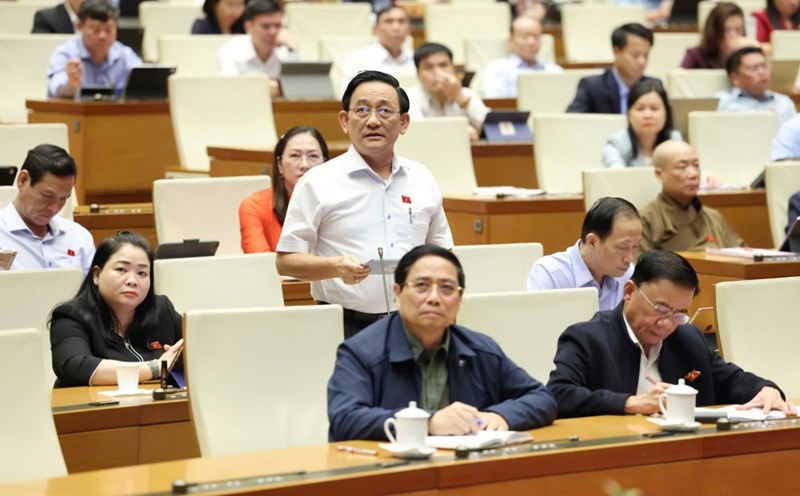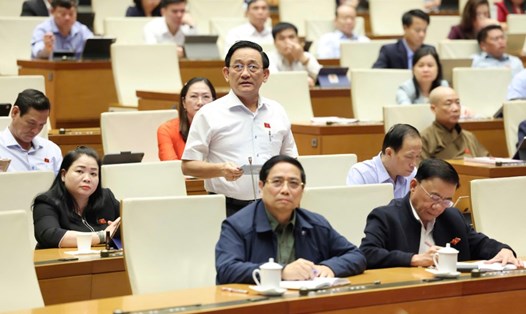On November 25, information from the National Assembly Office said that National Assembly Chairman Tran Thanh Man had signed and issued Resolution 245/2025/QH15 on the state budget estimate for 2026.
According to the Resolution, the state budget revenue is VND 2,529,467 billion. Of which, central budget revenue is VND 1,225,356 billion, local budget revenue is VND 1,304,111 billion.
Use the remaining VND23,839 billion from the local budget's salary reform fund by the end of 2025, transferred to the local budget for 2026 to implement the basic salary of VND2.34 million/month.
The total state budget expenditure is VND 3,159,106 billion. Of which, the central budget expenditure is 1,809,056 billion VND, including an estimated 238,421 billion VND to supplement local budget balance, an estimated 187,175 billion VND to supplement local budget target, and an estimated 53,554 billion VND to supplement localities to ensure the implementation of the basic salary of 2.34 million VND/month.
Local budget expenditure is 1,350,050 billion VND, excluding expenditure from additional sources with targets, balanced supplements, and supplements to ensure the basic salary of 2.34 million VND/month.
The state budget deficit is VND 605,800 billion, equivalent to 4.2% of gross domestic product (GDP), including: Central budget deficit is VND 583,700 billion, equivalent to GDP 4%; Local budget deficit is VND 22,100 billion, equivalent to 0.2% GDP.
The total mobilized demand of the state budget is 985,784 billion VND.
Regarding the implementation of salary policy and social policies, ministries, central and local agencies continue to implement solutions to create sources for salary policy reform according to regulations.
In 2026, some revenues will continue to be excluded when calculating the increase in local budget revenue compared to the estimate for salary policy reform, including:
Collecting one-time land rent advances from investors for compensation, support and resettlement; collecting from handling public assets at agencies, organizations and units decided by competent authorities for investment expenditure according to regulations; collecting money for protecting and developing rice-growing land; collecting from public land funds, collecting profits and assets in communes and collecting money for renting and selling state-owned houses...
Allowing the expansion of the scope of using the central budget's salary reform accumulation funds to adjust pensions, social insurance benefits, monthly allowances, preferential allowances for meritorious people and streamline the payroll;
Allowing the use of salary reform funds from local budgets to implement social security policies issued by the Central Government and streamline staff.
Assign the Government to review regular operating support savings (salary and operating expenses according to the provisions of law) due to staff streamlining, reorganizing the apparatus to implement the 2-level local government model; allow localities to use this savings fund to supplement salary reform sources of local budgets.
From 2026, the Government is assigned to proactively use accumulated funds for salary reform to ensure the implementation of salary, allowance and income regimes according to regulations.
The Government directs a review of the situation of using central budget funds assigned to ministries, central and local agencies to implement policies and regimes for cadres, civil servants, public employees, etc. who do not fully use them by the end of 2025, and to recover and repay the accumulated salary reform funds of the central budget.











